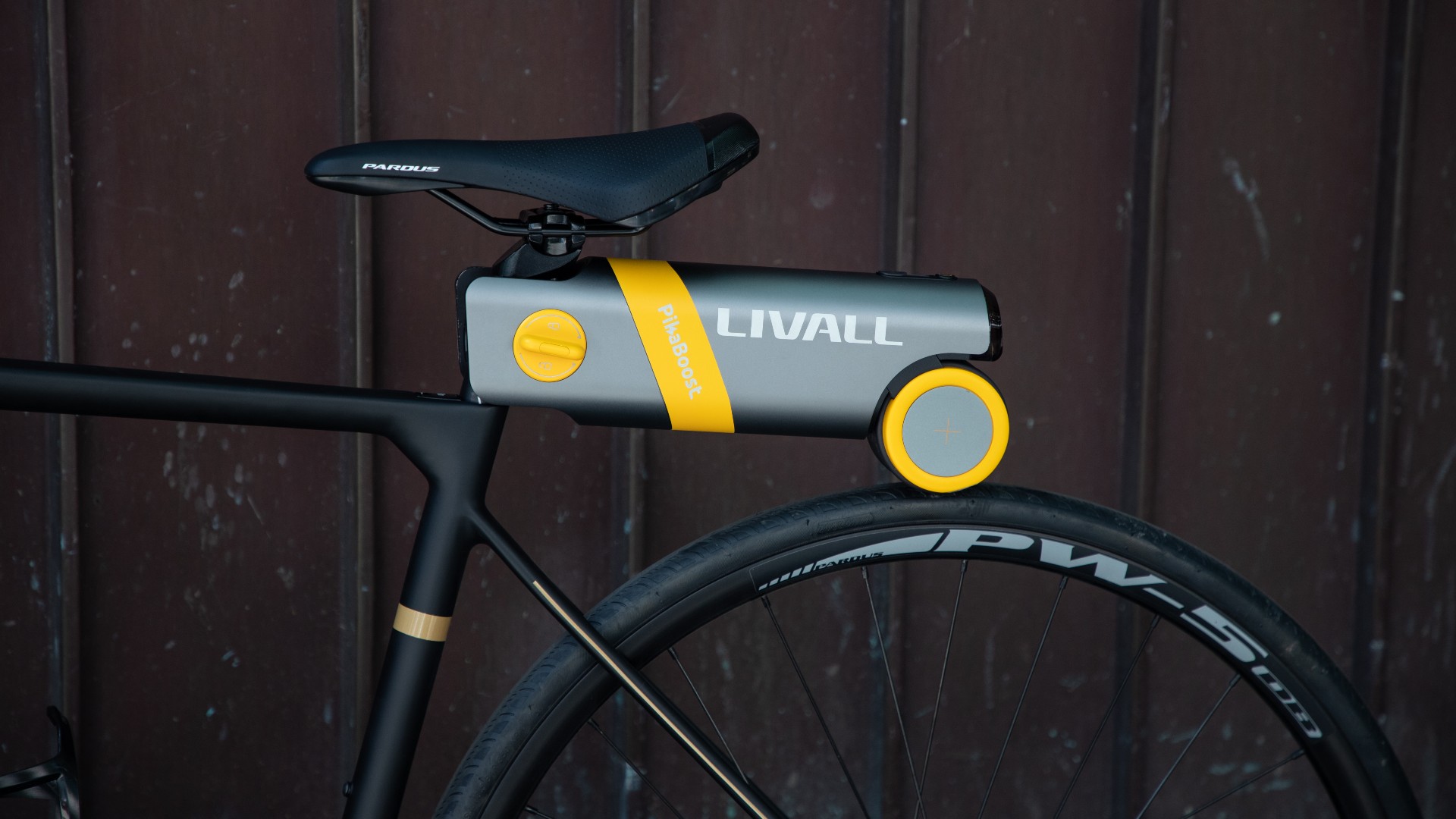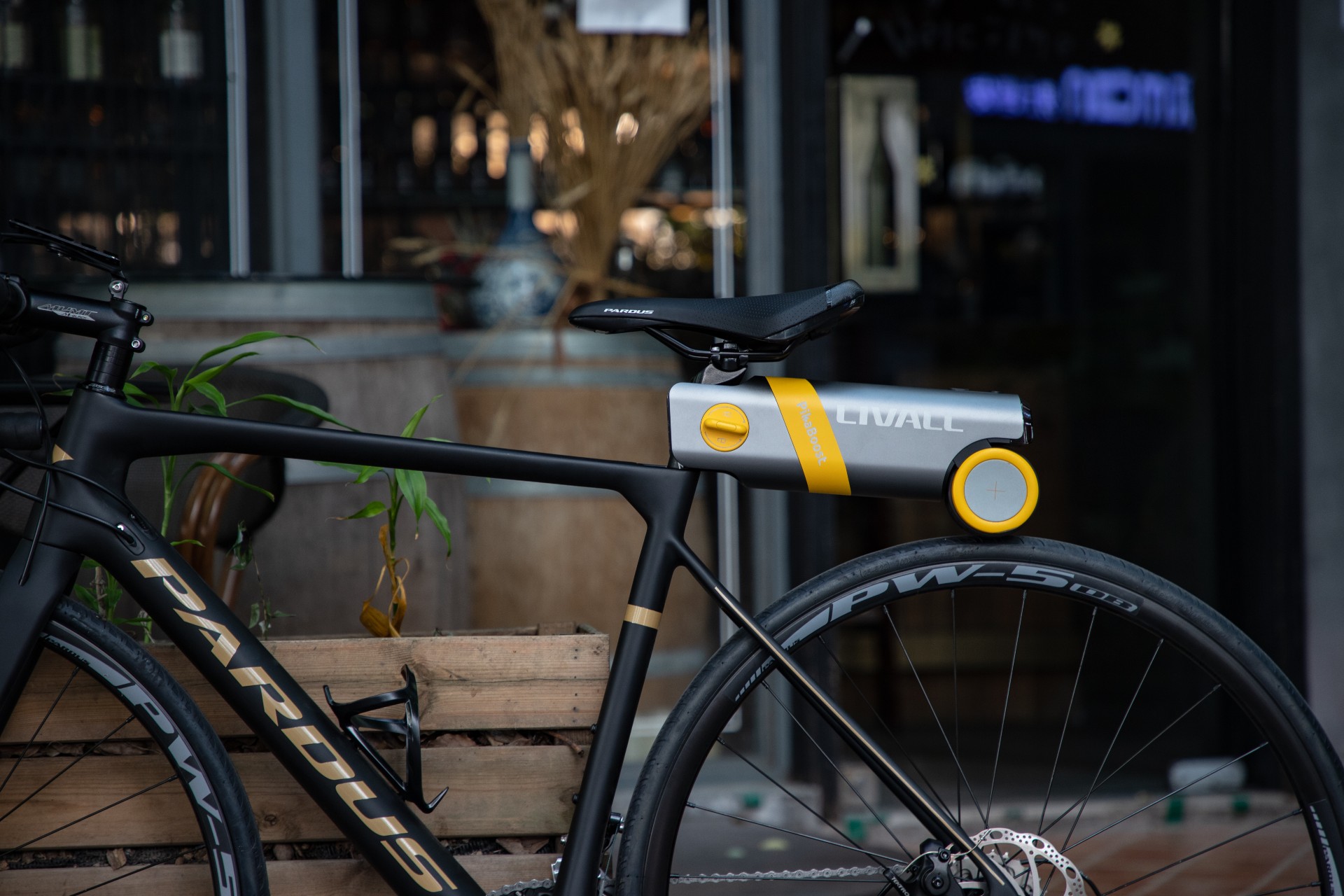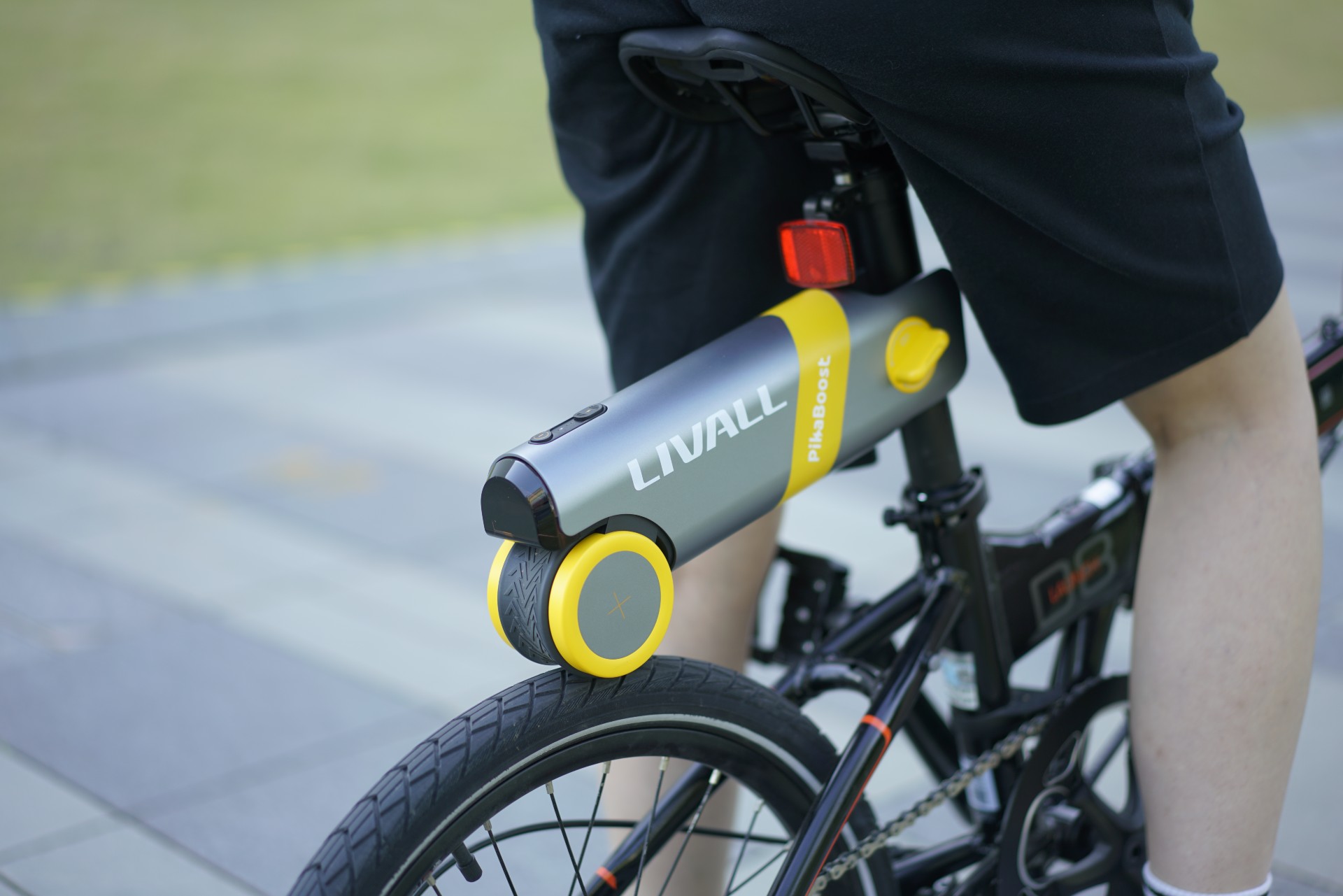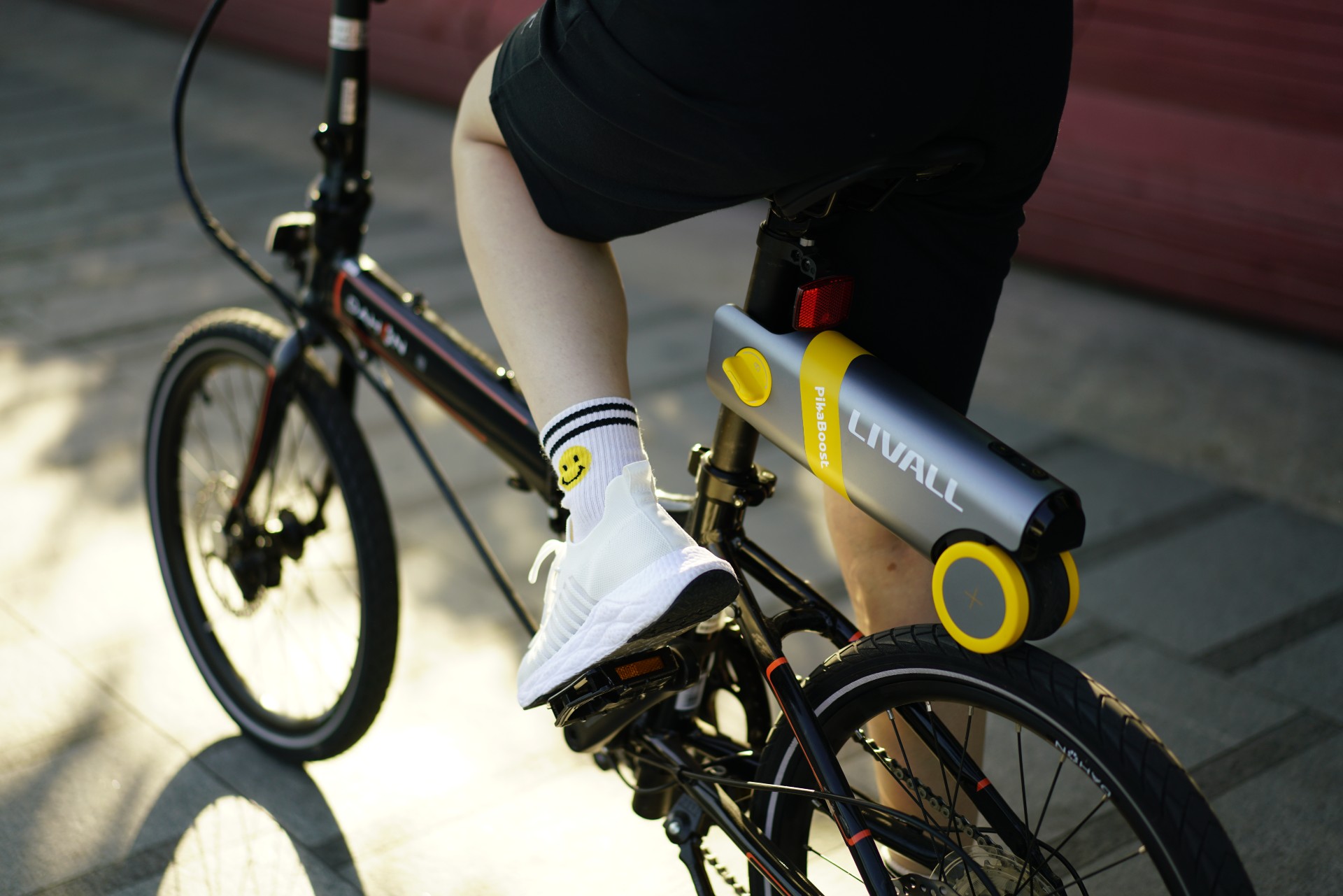Livall Pikaboost e-bike conversion kit is self-charging, takes 30 seconds to fit and will cost under $300/£300
Innovative new energy-saving electric bike converter launches on Kickstarter with a price that undercuts other popular e-bike conversion kits


The Livall Pikaboost e-bike conversion kit, which launches on Kickstarter on Thursday November 3, looks as though it offers some fascinating features that we haven’t seen in rival, better-known kits such as Swytch or Revos.
The Shenzhen-based brand, which produced a smart bike helmet with GPS, LED lights, Bluetooth speakers and a microphone as long ago as 2018, claims the Pikaboost transforms any bike into an e-bike in under 30 seconds.
There’s no motor hub or crank sensor to fit: the Pikaboost simply pushes onto the seatpost and is installed tool-free with no need to adapt your current bike set-up.

Some of the best e-bike conversion kits also do that, such as the Revos, but whereas the Revos has a separate battery that needs to plugged into the mains to be charged, the Livall Pikaboost has a ‘Regenerative System’ whereby it can be recharged by pedalling in its non- or lesser-assist modes - a bit like a self-charging hybrid car.
The PikaBoost has three modes: Cruise, Roll and Exercise. Cruise mode offers the equivalent to ‘cruise control’ and will automatically maintain bike speed, even when the rider is not pedalling.
Roll is there to offer assistance up hills, ideal for kids, the elderly or those with lower stamina according to Livall - or indeed those who don’t want to get sweaty on their commute.
Exercise mode actually increases the resistance - like an outdoor turbo-trainer - and we’re guessing it’s this mode that puts the charge back into the batteries fastest.
All modes can be navigated via the PikaBoost app.
We asked Livall for more detail on how it self-charges and this was the answer: "The principle of Regenerative System is to save more energy based on the terrain changes (flat road, downhills) and braking. It operates differently in different riding modes."
We think the Cruise mode is UK legal despite the general assumption that the rider must be pedalling in order for the assist to be delivered; we asked Livall and the answer was: "PikaBoost works as a pedal-assist booster just like an e-bike so it's legal in UK and in other EU countries."

Battery power comes from 18 x 13Wh cells, which are standard and replaceable 18650 batteries (equivalent in voltage to 2.5 AAs each), totalling 234Wh and delivering the UK legal maximum power of 250W.
Livall claims a range of up to 30km or 18 miles, which it says is comparable with ‘bulky’ e-bikes. This is the same as Swytch’s Max kit’s range.
The PikaBoost incorporates safety features including an auto-sensing, two-mode rear light behaves like a regular rear light, or when ‘ auto’ mode is selected, is able to detect a decrease in speed, acting as a brake light.

Another safety feature of the PikaBoost is that the motor will stop when an angle of 45 degrees declination is detected - ie if the rider is falling off - and it’s IP66 waterproof, which should make it a durable option for all weather conditions.
And so that you don't have to remove it each time you park your bike, the Pikaboost has an auto-locking system whenever the Bluetooth signal from your phone disconnects from it.
And finally, it has a USB port so that it can act as a battery pack to charge devices or lights (ideally not while the bike is in motion).
The Livall Pikaboost weighs 3kg and measures 6.6 x 33.8 x 13cm. By comparison, the latest Swtych conversion kit - including the 1kg battery, motor hub and associated hardware - added 3.1kg to the bike we used to test it.
The price point is USD$299 – which converts to approximately UK£260 if orders are made via Kickstarter (which opens November 3).
Outside the Kickstarter campaign the full price is $599.
Price wise Livall undercuts most of its rivals even at its full price. The Swytch full kits start at £999 while the Revos kit is priced at £599.99.
For more information check out PikaBoost's website. The Kickstarter campaign starts on Thursday November 3.
We plan to get one in for review ASAP.

Thank you for reading 20 articles this month* Join now for unlimited access
Enjoy your first month for just £1 / $1 / €1
*Read 5 free articles per month without a subscription

Join now for unlimited access
Try first month for just £1 / $1 / €1
Get The Leadout Newsletter
The latest race content, interviews, features, reviews and expert buying guides, direct to your inbox!
Simon Smythe is a hugely experienced cycling tech writer, who has been writing for Cycling Weekly since 2003. Until recently he was our senior tech writer. In his cycling career Simon has mostly focused on time trialling with a national medal, a few open wins and his club's 30-mile record in his palmares. These days he spends most of his time testing road bikes, or on a tandem doing the school run with his younger son.
-
 Deuter's 30ltr commuter backpack
Deuter's 30ltr commuter backpackA rolltop bag to fit a change of clothes and a sandwich. And keep them dry
By Simon Richardson Published
-
 The thing that bothers me most when I look back at old school training is that right now we’re doing something equivalently misguided
The thing that bothers me most when I look back at old school training is that right now we’re doing something equivalently misguidedOur columnist's old training diaries reveal old-school levels of lunacy
By Michael Hutchinson Published